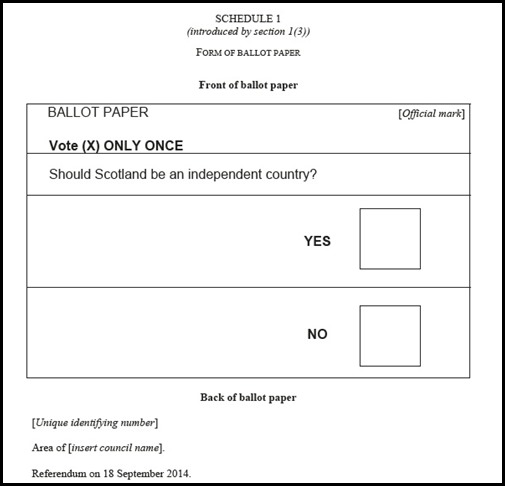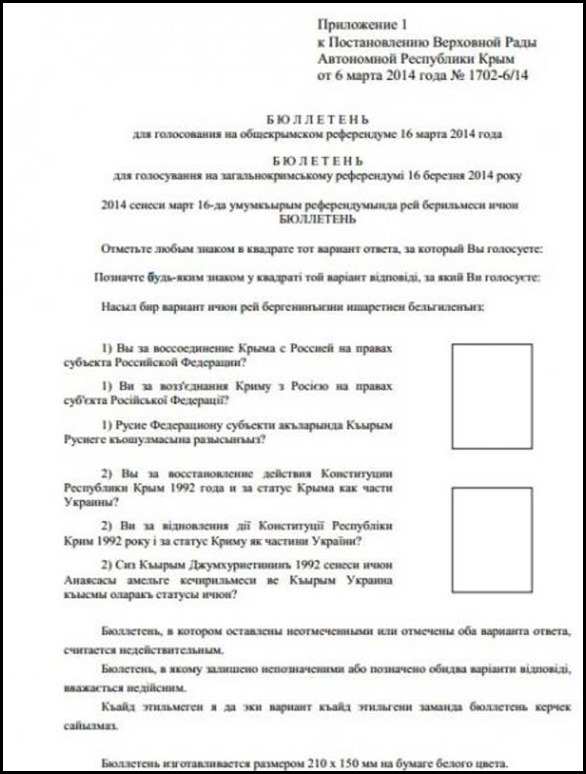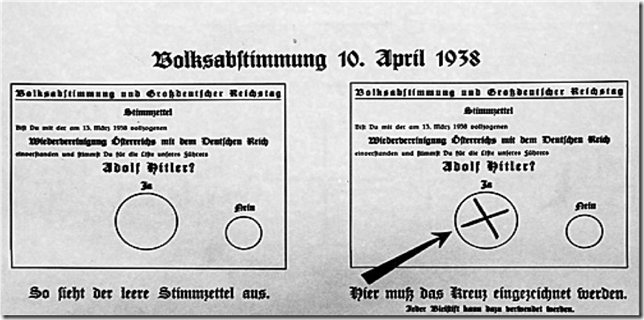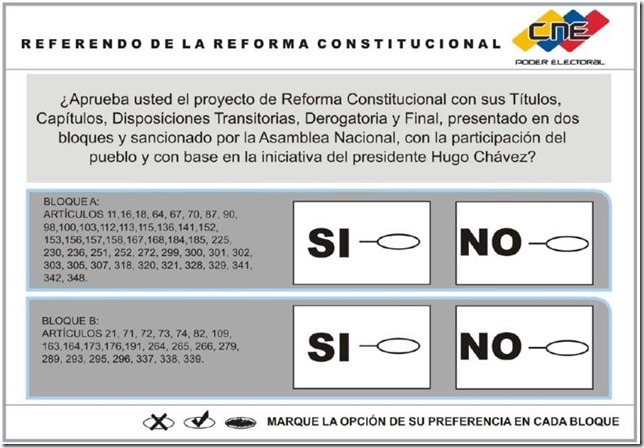Today in Comparative Ballots (“Independence or not” Edition)
One of these ballots is legit. The others, not so much.
 Here is the ballot for today’s referendum on Scottish independence (from the Scottish Referendum Act of 2013):
Here is the ballot for today’s referendum on Scottish independence (from the Scottish Referendum Act of 2013):
Apart from my general love of all things ballot, the clean, clear nature of this ballot paper struck me as rather substantially different from a recent example of another referendum about independence.
To wit, the ballot from Crimea:
As Steve Saideman noted about ballot this at the time:
According to the Kyiv Post, voters in Crimea next Sunday will be asked whether they support the union of Crimea with Russia (an act of irredentism) or whether Crimea should be independent (secession). There is no alternative – one cannot vote for the status quo ante of remaining within Ukraine.
This would suggest that the referendum might just be a bit of a sham.
See also: More Information on the Crimean Referendum Ballot
Another fun comparison. the Anschluss:
Gee, I wonder which outcome the Nazi’s preferred?
Also, if one wants an example of lack of clarity, note this ballot from a 2007 Venezuelan referendum on constitutional amendments:
The above ballot is fun (or, is at least a good illustration) because it gives two seemingly straightforward options (yes and not) but each question deals with more than a dozens proposals each (both lost, btw).







Why does the 2007 Venezuelan referendum ballot have little semen’s on it?
Once you put Hitler’s name on a ballot, you’ve pretty much lost the argument.
You buried the lede on the Venezuela ballot, which translates to (more or less) “Do you approve of the project of Constitutional Reform with its [boilerplate], presented in two blocks and sanctioned by the National Assembly, with the participation of the people and based on the initiative of President Hugo Chavez?”
What you’re voting for may not be super-clear, but whether or not they want you to say “yes” is.
@GeoffBr: There’s a lot that could be said about that 2007 ballot. I do think it is interesting that both blocs of amendments lost. This did lead to a far more direct ballot in 2009.
My favorite was an initiative in Ohio a few years ago. The ballot was clear, but the language was something like – repeal the act to withdraw the cancellation of the expiration of the failure to pass whatever. In full it was a string of something like six negations. Had to rely on the newspaper summary that YES meant they wouldn’t do whatever it was.
How did both propositions lose in Venezuela? Neither got a plurality of votes?
@Tillman: They were not competing, but were two separate questions. In both cases “no” won more than 50% of the vote.
@gVOR08: My old logic professor, as a fun exercise for a day, had us symbolize a statement from IRS rules for filling out a specific kind of tax form. When forty minutes had passed (for reference, in the relatively-weak system of logic we were using, a paragraph of instructions shouldn’t have take more than five, ten minutes tops), and after several students had come to him for help with specific parts of the statement, he let loose the one-liner, “As you can now see, it is impossible to understand an IRS rule.”
Best comparison is the Quebec independence ballot. That question was a nightmare.